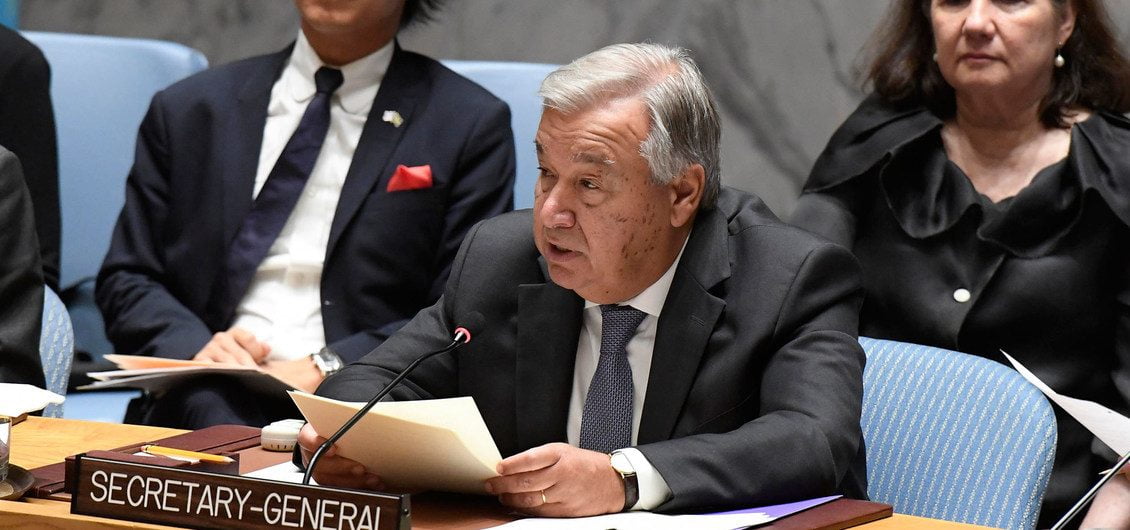As war and the mediation of peace have become increasingly complex, innovative thinking is needed to save and improve the lives of millions, United Nations Secretary-General António Guterres told the Security Council on Wednesday.
As speakers at the day-long debate warned that the maintenance of international peace and security faces multiple challenges, Mr. Guterres noted that many internal conflicts feature a deadly mix of fragmented armed groups and political interests, funded by criminal activities, and that peace agreements are becoming more elusive and short-lived.
Archbishop Justin of Canterbury, a member of his High-Level Advisory Board on Mediation, expressed concern that the international rules-based order is struggling, with national interests too often allowed, “even in this chamber”, to overcome the wisdom of those who have lived through war.
For this reason, the Secretary-General has made diplomacy for peace one of his key priorities, with a focus on prevention and investment in mediation, peacebuilding and sustainable development.
As an example of his commitment, he pointed to the creation of the High-Level Advisory Board on Mediation in September 2017, which aims to allow the UN to work more effectively with regional organizations, non-governmental groups and others involved in mediation around the world.
He added that the UN already has a wide range of mediation resources at its disposal, including special envoys and representatives pursuing consultations, good offices and formal talks.
Mr. Guterres told the Council that the UN recognizes the important role played by an “enormous range” of actors, from national bodies to civil society group, women’s organisations, religious leaders and young activists.
The Secretary-General and Ms. Qadeem both emphasised the importance of investing in women’s meaningful participation and leadership in peace processes. Mr. Guterres cited the emergence of regional networks of women mediators, such as the Nordic Women’s Mediators’ Network and the African Union’s FemWise group.
Ms. Qadeem highlighted ways in which women have been excluded from mediation, with many sceptical of their ability to talk to violent extremist groups like the Tamil Tigers or the Taliban. In fact, women have played mediation roles in both cases.
“I found the courage not only to speak with them to release my staff members they had captured, but I took the chance to seek support for the implementation of health and education projects. This is mediation.”
The UN chief told the Council that a changed conflict landscape calls for bold, creative thinking in international mediation: using social media effectively as a tool to bring communities together, speaking with one voice, and supporting the mediation efforts of regional and sub-regional organisations. “Innovative thinking on mediation”, he said, “is no longer an option; it is a necessity.”


